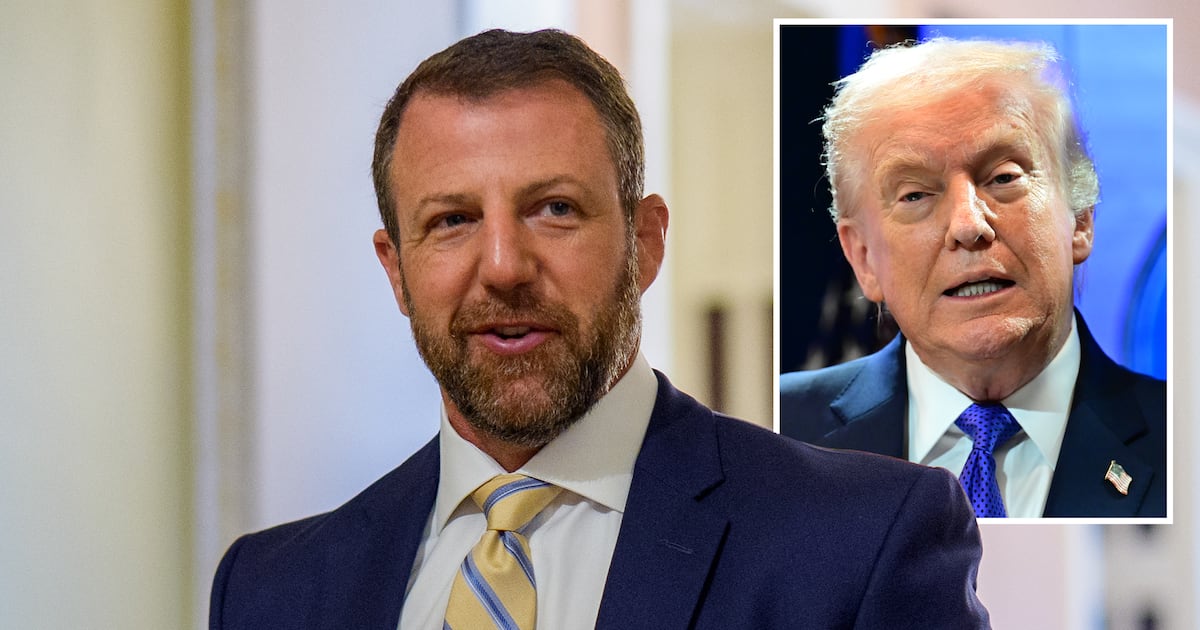The Oscar-nominated film The Invisible War brings an issue to light that hasn’t had enough attention—rape and sexual assault in the U.S. military. After outgoing Defense Secretary Leon Panetta screened the documentary late last year, he ordered the prosecution of these crimes bumped up to the handling level of colonel and Navy captain, and out of the hands of frontline commanders whose inclination is to downplay such incidents and protect the perpetrators.

“This film has changed the conversation within the military,” says Connecticut Sen. Richard Blumenthal, a member of the Senate Armed Services committee.
The film gives a voice and a face to the ongoing problem of sexual assault against women, and also against men, a crime that is underreported by both genders because of the fear of retaliation.
“It was a real breakthrough that they got Panetta to see the film,” says Michele Flournoy, who until early last year was the highest civilian woman at the Pentagon. Panetta found it “outrageous that this goes on,” she said at a panel discussion in Washington, D.C., earlier this month. Taking line authority away from the commanders is “a great first step,” says Flournoy.
Filmmaker Kirby Dick said his female producer interviewed more than a hundred women and men before building the trust that allowed a half dozen subjects to tell their stories on camera. What comes across is the genuine idealism that motivated each of them to join the service. Some came from military families; others dreamed of putting on a uniform from the time they were children. Their disillusionment is captured on screen as each comes to terms with betrayal by the institution they love.
“They might be able to survive the rape, but they couldn’t survive what happened to them after the rape,” says New York Sen. Kirsten Gillibrand. The service members who tell their stories in the film are no longer in the military, while their assailants for the most part went unscathed and in some cases got promoted. Watching the film is like reading Alice in Wonderland, where everything is upside down, and it’s the victim who gets charged with fraternization or adultery. In one case, the woman wasn’t even married; her assailant was—enough to trigger the adultery charge.
The numbers are alarming, and they reflect the fear of retribution. In 2011, women reported 3,000 instances; the real number is thought to be 19,000. Very few cases are prosecuted. Even when convicted, one out of three perpetrators stay in the military, while others exercise their option to walk, pension and benefits intact.
“This is a huge, gaping hole in accountability,” says Flournoy. With only 14 percent of sexual assaults reported, and just 8 percent going to trial, “What message is that sending?” she asks. “A real resolution would be every assailant in jail.”
Gillibrand holds her first hearing next month as the newly named chair of the Military Personnel Subcommittee. The hearing will be on sexual assaults in the military. Since viewing the film with 10 of her top staffers, she points to some changes that have been made, including mandatory processing for anyone convicted of sexual assault, which means getting booted out of the military, and “victim expedited unit transfers” which would have given one woman portrayed in the film a way out of her post in Alaska, where she was being brutalized.
Gillibrand told Panetta’s likely successor, Chuck Hagel, that she wants him “to care about the outcome of each of these cases as if it were your own son and daughter.” Hagel assured her after seeing the film that he would, “and I will hold him accountable on this issue,” she says.
The senator said she will be watching closely to see how well the change is working that Panetta instituted, moving prosecution of sexual assault up the chain of command. “We don’t know yet if that’s sufficient,” she told The Daily Beast, adding that she will be asking for recommendations in the next six months on how to create a separate structure for allegations of sexual assault where victims could be assured of privacy.
Training tools in the military are antiquated, with admonitions such as, “Ask her when she’s sober” for men, and, “Travel with a buddy” for women—language that diminishes the seriousness of the crime.
“This is not a date that’s gone awry; this is a violent criminal act,” says Gillibrand. And it’s not only about women. With 1 percent of all people in the military experiencing sexual assault, that means among men, given their dominant numbers “the incidence is very high—it’s just that men don’t report it,” she adds.
Gillibrand wants to review the so-called Feres doctrine, which bans service members from making claims against the federal government for injuries suffered while serving. She thinks there should be an exemption made for sexual assault. “It shouldn’t be part of that tough job that you just might get raped,” she says. “The military has a duty to protect men and women who are sexually assaulted.”
It has been more than 20 years since the Tailhook scandal broke about sexual assault of women and men at a convention of Navy and Marine Corps flyers in Las Vegas. Hundreds of military careers were brought to an unceremonious end, books were written, and there was a TV film.
Over the last two decades, the military culture has been transformed in many positive ways. The Invisible War shines a light on a hidden area where the military understands it must act to avert what would otherwise become a full-blown scandal.






